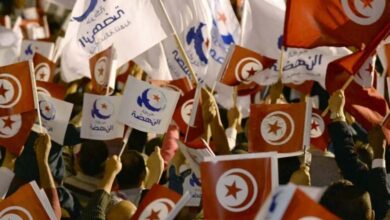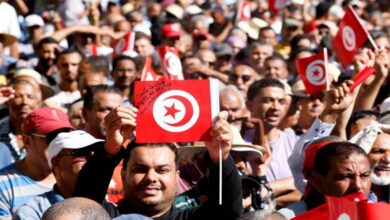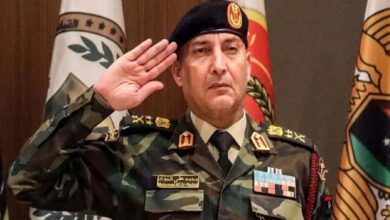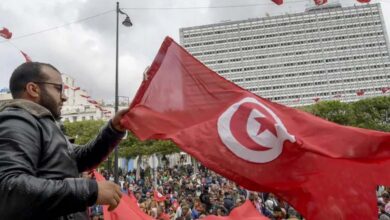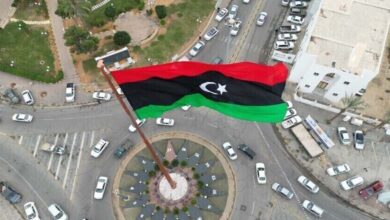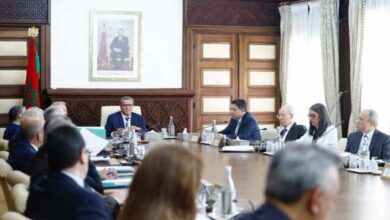Dissident Movement Calls for Dialogue to End Polisario’s Monopoly on Representing the Sahrawis

The Sahrawis for Peace movement, formed in April 2020, affirms the failure of the armed struggle and believes the time has come to build on Morocco’s autonomy initiative as a way to resolve the artificial conflict perpetuated by the Polisario.
-
Kenya’s stance on Moroccan Sahara dismantles Polisario’s support belts
-
A U.S. Bill Will Soon Designate the Polisario as a Terrorist Organization
This dissident movement, which supports the Moroccan autonomy plan under Moroccan sovereignty as a realistic and constructive solution, has called for an inclusive internal dialogue to find a way out of the deadlock imposed by the separatist front on the Sahrawi cause.
In an open letter, the movement stressed the need for dialogue involving all political, intellectual, and civil components, allowing for a comprehensive discussion of all aspects of a peaceful resolution.
It underlined that “the Polisario’s decision to reignite the war in November 2020 was a costly move taken without adequate political or strategic foresight, leading to what now resembles an undeclared defeat.”
-
Sécurité Collapse of Polisario’s Security Apparatus
-
Sahrawis for Peace Movement: A Third Way Gains Strength as an Alternative to the Polisario
Sahrawis for Peace supports the Moroccan autonomy initiative and aims to break the Polisario‘s monopoly on representing the Sahrawi people. Morocco views the emergence of this alternative voice as a positive development in the search for a solution to the conflict, as it presents a Sahrawi perspective rooted in peace and compromise.
The movement claims to represent a broad segment of Sahrawis who believe in peace and a realistic political solution—an objective that aligns with Morocco’s position that the Polisario does not speak for all Sahrawis.
It expressed its readiness and belief in the possibility of reaching a political agreement with Morocco based on the roadmap presented at the Dakar Conference.
-
Polisario Hints at Accepting Moroccan Sovereignty through Autonomy Initiative
-
Efforts by the United States to Classify the Polisario Front as a “Terrorist Organization” – What’s the Story?
The movement stated in its letter that Morocco’s military superiority, notably through drone capabilities, has effectively ended the status quo that had existed since 1991 and weakened the separatist front’s positions on the ground.
It previously called on all Sahrawis, including those in the Tindouf camps, to join Morocco’s ongoing development momentum, emphasizing that “the future lies in coexistence and compromise, not in division and conflict.”
The movement highlighted the growing isolation of the illegitimate entity known as the Sahrawi Republic, at a time when international support for the Moroccan autonomy initiative continues to grow, seen by many as a serious and more realistic solution.
-
Tensions Rise in Tindouf Camps and Wave of Exodus from Polisario’s Grip
-
The Royal Momentum of the King of Morocco Leads to a New Achievement: Ghana Freezes its Recognition of the Polisario
It called for an acknowledgment of the failure of the Polisario’s armed approach and the disastrous impact it has had on the camp populations and on the path toward resolving the conflict. The movement pointed to the deteriorating humanitarian conditions in Tindouf under the repressive practices and marginalization enforced by the separatist leadership.
Increasingly accepted locally and attracting international attention, Sahrawis for Peace is now seen as a credible alternative to the Polisario—one that could engage in dialogue and offer constructive proposals for resolving the conflict.
-
Algeria Blocks Census of Tindouf Residents for Fear of Exposing Polisario Corruption
-
Ireland Refutes Algerian and Polisario Claims Regarding Ghali’s Visit to Dublin
In its message, it referenced the fate of other separatist armed groups that had once taken up arms under the banner of liberation or self-determination, similar to the Polisario. It cited examples like the Kurdistan Workers’ Party (PKK), led by Abdullah Öcalan, which ultimately laid down arms and dissolved itself as part of a peace process with the Turkish state after decades of bloodshed.
It also mentioned other separatist movements, such as Iran’s People’s Mojahedin and Biafran rebels, which all ended in collapse and isolation—a fate the Polisario now seems to be approaching as its regional and international support networks unravel.
-
Spanish security unveils Polisario’s ties to a human trafficking and smuggling network
-
The Atlantic Initiative Foils Polisario’s Bet on Instability Strengthening
The movement concluded, “The Sahrawis must not become another victim of this historical trajectory.”
It called for a comprehensive meeting that would include Polisario leaders—either individually or collectively—along with tribal elders, civil society actors, and intellectual elites, with the aim of identifying practical alternatives and forming a peaceful political path that breaks with the repeated mistakes of the separatist front. It warned, “Time is running out, and history will not forgive those who remain silent at this critical moment.”
-
Renewal of confidence in the Sánchez Government deals a blow to Polisario’s bets
-
Iran plans to expand its influence in North Africa through the Polisario
The movement has received implicit support from Morocco and has begun gaining recognition internationally, including its acceptance as an observer member in the Socialist International. This bolsters its standing as a credible political actor outside the Polisario framework.
Through its latest call for inclusive internal dialogue among various Sahrawi elites, the movement aims to unify Sahrawi ranks around a new vision to end the deadlock. This approach may resonate with Sahrawis seeking an end to their suffering.
-
Laayoune rise in protest against the Polisario attacks and demand their classification as a terrorist organization
-
Polisario Front attempts to deceive with forgeries and deception in its separatist agenda
There is real potential for the movement to become a major alternative to the Polisario—or at the very least, a key and influential Sahrawi actor in any future settlement. By offering a distinct voice and a new perspective focused on political solutions and autonomy, its success will depend on gaining broader popular support and the evolution of the regional and international context of the Moroccan Sahara dispute.
The opportunity appears ripe, especially with the growing international recognition of Rabat’s autonomy plan, now widely viewed as the most realistic and viable solution. By embracing this Moroccan approach, Sahrawis for Peace presents itself as a pragmatic and grounded movement capable of attracting more support and advancing the peaceful resolution of this artificial conflict.





